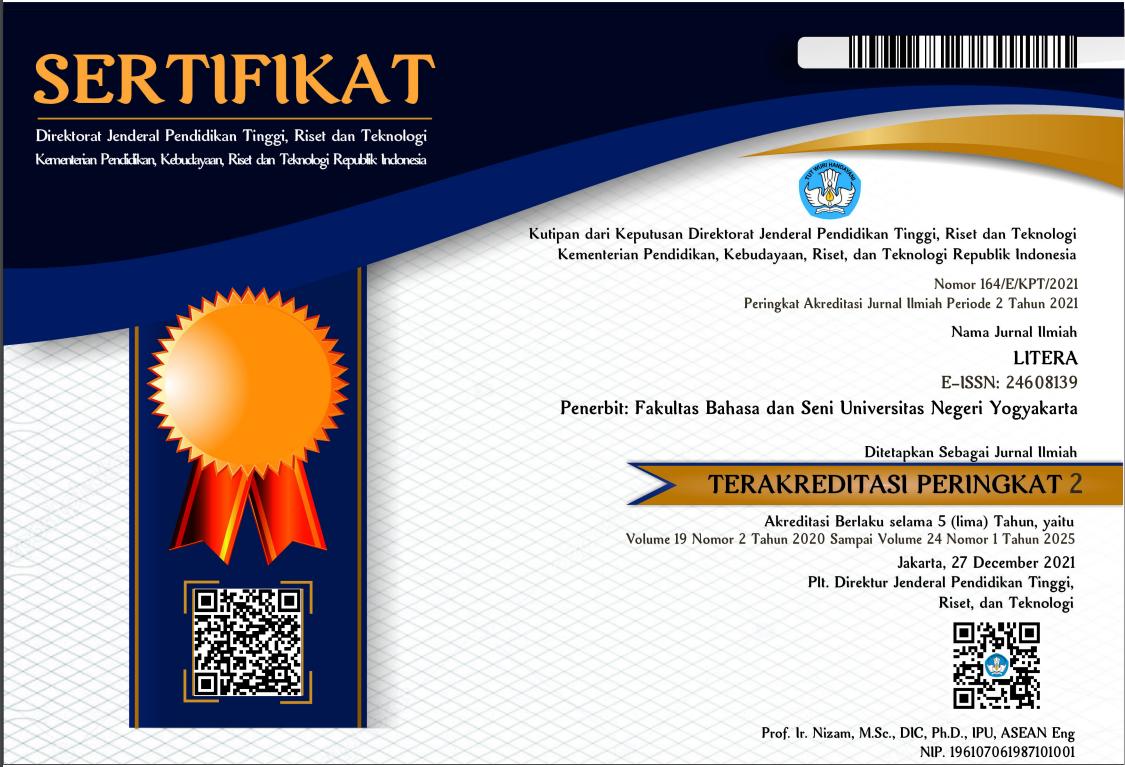LEKSIKON SAMIN SEBAGAI CERMIN PANDANGAN DUNIA PENUTURNYA
Abstract
Abstract
The Samin people are a group of Javanese speakers. However, the Javanese they use
is a little different from the common Javanese in some ways. For example, they use some
distinctive lexicons such as rukunan ‘husband/wife’, pondhokan ‘house’, turun ‘child’, and so
on. This article discusses the distinctive lexicons in the Samin community to explain why
they use such unique lexicons. The discussion employs the framework of anthropological
linguistics studying linguistic facts in a broad sociocultural context. The findings reveal that
the use of distinctive lexicons by the Samin community is not coincidental, but related to
their perspectives on viewing things labeled by the lexicons; how they do so is influenced
by the Saminism ideology. In addition, it is also revealed that in some instances, for the
Samin community, the lexicons are not just labels that mark something, but also tools to
interpret something.
The Samin people are a group of Javanese speakers. However, the Javanese they use
is a little different from the common Javanese in some ways. For example, they use some
distinctive lexicons such as rukunan ‘husband/wife’, pondhokan ‘house’, turun ‘child’, and so
on. This article discusses the distinctive lexicons in the Samin community to explain why
they use such unique lexicons. The discussion employs the framework of anthropological
linguistics studying linguistic facts in a broad sociocultural context. The findings reveal that
the use of distinctive lexicons by the Samin community is not coincidental, but related to
their perspectives on viewing things labeled by the lexicons; how they do so is influenced
by the Saminism ideology. In addition, it is also revealed that in some instances, for the
Samin community, the lexicons are not just labels that mark something, but also tools to
interpret something.
Full Text:
PDFDOI: https://doi.org/10.21831/ltr.v14i1.4410
Refbacks
- There are currently no refbacks.
______________________
__________________________________________________________________________________________________
The International Journal of Linguistic, Literature, and Its Teaching at http://http://journal.uny.ac.id/index.php/litera/ is licensed under a Creative Commons Attribution-ShareAlike 4.0 International License
__________________________________________________________________________________________________














